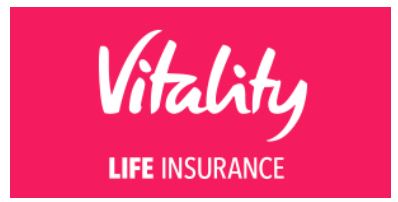Critical Illness Insurance
FAQs
Critical Illness Insurance is a type of insurance that pays out a tax-free lump sum if you’re diagnosed with, or undergo surgery for, a critical illness that meets certain policy definitions during the policy term and normally survive at least 10 days. Please see the policy details for full coverage.
It’s designed to help support you and your family financially while you deal with your diagnosis – so you can focus on your recovery without worrying about how the bills will be paid.
You choose the amount of cover you need and how long you need it for. You can take out life insurance under joint or single names.
You can take it on a level or decreasing basis.
Premiums are paid monthly.
Please note for these insurance products, terms and conditions apply. This information is a summary only. You will receive a full policy document upon application. This policy will set out the terms, conditions and limitations of cover provided under the plan.
For more help, speak with our fully qualified advisors.
There are two main types of critical illness insurance and while can be bought as a stand alone policy, its common for these to be added to a life insurance policy: decreasing life insurance, known commonly as mortgage cover, and level cover, also known as either term life insurance or whole of life insurance (depending on the product). Speak with our advisors to find out what cover you need.
Critical Illness a usually an add on to life insurance, however it can be taken as a stand alone plan.
It is designed to help protect you if you become critically ill during the policy term.
It pays out a tax-free lump sum that you can use however you like – whether that’s to help cover health-related costs, monthly expenses, or lost income while you get better.
Your cover will be based on how long you want your policy to last (as most policies will end automatically once you make a claim), and how much you want to pay each month.
You’ll probably want to make sure that you have cover in place for as long as you still have significant demands on your income, such as an outstanding mortgage or children’s school fees.
The next thing to consider is whether you want your critical illness plan on a level cover or decreasing cover basis.
With level cover, you choose a lump sum to leave behind, and select how long you want your cover to run for. You’ll then pay the same amount each month until your policy ends. This option could suit you if you want to make sure your salary and living standards are covered.
You can choose to make your cover amount increase in line with inflation. This means that your monthly payments may rise, but ensures that the lump sum won’t be worth less in the future because of the rise in the cost of living.
With decreasing cover, the value of your cover goes down each month, but what you pay stays the same for the duration of the policy. This option could suit you if you want to cover any debts or loans that you repay monthly, such as a repayment mortgage.
As state benefits might not be enough to replace your income if something goes wrong and you can’t work because of long-term sickness or disability, critical illness is a really good idea.
If you’re eligible, Employment and Support Allowance currently ranges from around £70 to just over £100 a week, depending on your circumstances and the seriousness of your illness or disability.
https://www.gov.uk/employment-support-allowance/what-youll-get (By clicking this link you will be departing from our website.)
You should look at getting critical illness cover if you don’t have an employee benefits package to cover a longer time off work due to sickness, and/or you don’t have enough savings to tide you over if you become seriously ill or disabled.
Critical illness insurance will pay out if you get one of the specific medical conditions or injuries listed in the policy.
With certain providers this can be as many as 182 conditions.
But be aware that not all conditions are covered and the policy will also state how serious the condition must be.
Don’t confuse critical illness cover with life insurance, although they are sometimes sold together.
Examples of critical illnesses that might be covered include stroke, heart attack, certain types of cancer, and other conditions such as multiple sclerosis. Most policies will also consider permanent disabilities as a result of injury or illness.
It only pays out once and then the policy ends.
Some policies will make a smaller payment for less severe conditions, or if one of your children has one of the specified conditions.
For more help, speak with our fully qualified advisors.
Knowing what isn’t covered is almost as important as knowing what is.
Some serious illnesses might not be covered, for example, some cancers and conditions not listed in the policy.
There is a very good chance you won’t be covered for health problems you knew you had before you took out the insurance (known as pre-existing conditions) and this type of insurance doesn’t pay out if you die.
What’s covered and what’s not will be set out in the policy details so make sure you’re fully aware of them and that they cover your needs. For more help, speak with our fully qualified advisors.
Paying off commitments if you are ill is the first thought that people have when buying critical illness insurance and that’s a fantastic idea. But some people want to pay for medical procedures if there is a long wait for the NHS, or a final memory with their family, such as a dream holiday. Remember that there is a difference between critical and terminal. Receiving a critical illness insurance pay-out does not mean you are necessarily going to die.
Raising a child is one of the obvious reasons people start to think about critical illness insurance. But it’s not the only reason you should think about getting cover. If you live with your partner and they would struggle to pay the mortgage if you were to become ill, then you should consider critical illness insurance.
A critical illness insurance policy could be suitable if you have a mortgage, as the cash sum that could be paid out could help to pay off the mortgage. Or it could also be used to help your family with everyday living expenses.
Please remember that critical illness insurance is not a savings or investment product and has no cash value unless a valid claim is made.
Our Panel of Providers










CONTACT US
*Required
By clicking submit I expressly consent to be contacted with a view to bringing to my/our attention in the future, products or services that may be of interest to me/us: Mortgage products not linked to my/our existing arrangement. Any other products and services

